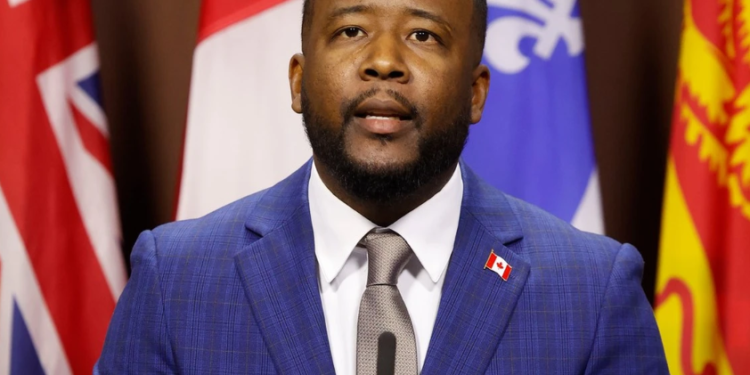Nov 19, 2024 Story by: Editor
The federal government has been battling a proposed class action lawsuit over the past two weeks, brought by Black public servants alleging systemic racism within Canada’s public service.
Here’s an overview of the country’s largest employment-related discrimination case against the Canadian government:
What is the Black Class Action Lawsuit?
Filed in 2020, the lawsuit seeks $2.5 billion in damages for lost wages and missed promotions, according to the Black Class Action Secretariat (BCAS), a group established by the lawsuit’s lead plaintiffs.
The suit represents approximately 45,000 Black government employees, retirees, and job applicants, alleging discrimination across 99 federal departments and agencies dating back to 1970.
What Are the Plaintiffs Seeking?
Led by Nicholas Marcus Thompson, the BCAS aims to implement lasting measures to combat systemic racism and discrimination within Canada’s public service.
The demands include:
- Compensation for impacted employees.
- Establishment of an independent mechanism for Black employees to report misconduct.
- Appointment of a Black Equity Commission.
- An official apology from the Prime Minister to current and former Black public servants.
BCAS is also advocating for fair representation of Black employees in public service and the recognition of Black individuals as an employment equity group under the Employment Equity Act, a commitment the government made last December.
What’s the Status of the Case?
The lawsuit’s progression depends on whether a judge certifies it as a class action.
In court, the federal government filed a motion to dismiss the case, arguing that grievances and human rights complaints—not litigation—are the proper channels for resolving such issues.
Government lawyers also requested the exclusion of employees from the Canadian Armed Forces, RCMP, Department of National Defence, and Correctional Service Canada from the lawsuit due to overlapping class actions involving those departments. The plaintiffs, however, maintain that this case specifically addresses hiring and promotion discrimination against Black workers.
The Court Timeline
The hearing is scheduled to conclude on Thursday, Nov. 14, but further arguments will be heard later regarding the inclusion of a new report as evidence.
The report, commissioned by the Black Executive Network, details instances of racism faced by Black executives in the federal public service, including allegations of severe workplace harassment and threats.
One incident recounts a white colleague threatening a Black executive during a meeting by raising a chair and saying he would “beat the N-word out of him.” Despite witnesses being present, no one intervened.
Clerk of the Privy Council John Hannaford described the report’s contents as “deeply concerning” in a statement to CBC News.
While the plaintiffs push for the report’s inclusion, government lawyers argue it’s too late to admit it, claiming it would delay the proceedings.
What Happens Next?
If the lawsuit is certified, it can proceed to trial.
According to BCAS legal adviser Kofi Achampong, certification may pressure the government to settle the case, though there is no guarantee. “The government might fight this for years to come,” he noted.
If certification is denied, individuals may still pursue personal claims, but many could be ineligible due to expired limitation periods or non-union status. Achampong also pointed out that unions might file policy grievances on behalf of Black public service employees in specific departments.
Government Spending on the Lawsuit
Achampong estimates the government has spent nearly $10 million fighting the case. While BCAS offered to settle, the government rejected the proposal.
In a statement, Treasury Board spokesperson Rola Salem declined to confirm spending figures but emphasized the government’s opposition to discrimination. “Complaints related to workplace discrimination are best addressed through grievance mechanisms under the Federal Public Sector Labour Relations Act, rather than through the courts,” Salem stated. Source: OTTAWA CITIZEN

















